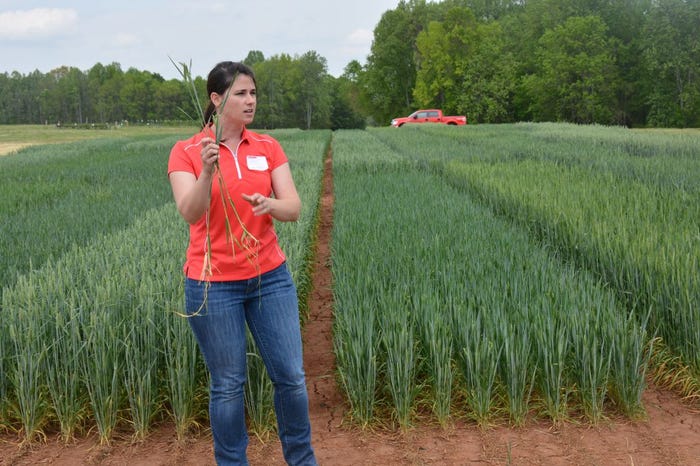
<p><span>North Carolina wheat was hit with two freeze events on April 5 and April 9, but Angela Post, the recently hired North Carolina State University Extension small grains specialist, says while some wheat plants were damaged, the freeze wasn’t severe enough for significant yield reduction.</span></p>
A warm, sunny day attracted a crowd of nearly 200 to the 2016 Small Grains Field Day at the Piedmont Research Station in Salisbury, N.C. Advice on wheat management, variety selection and tips on disease and weed control were highlighted.
In addition to wheat production, efforts to produce malting barley for North Carolina brewers and distillers and winter peas for North Carolina livestock feed were featured. The importance of soil management in the Piedmont was emphasized. At the field day, which took place April 21, wheat producers were advised to turn to the North Carolina Official Variety Test "Green Book" that comes out in July as the best source for wheat variety selection.
Christina Cowger, USDA ARS plant pathologist at North Carolina State University, says a dry April is good news for the threat of fusarium head blight or scab.“Scab risk is low.Unless the weather really turns wet for the next two weeks, our risk is very low and it would not pay to apply a fungicide for the control of scab," she said.
About the Author(s)
You May Also Like






